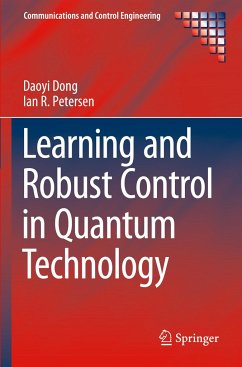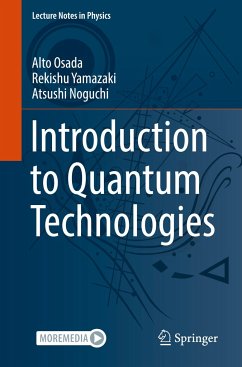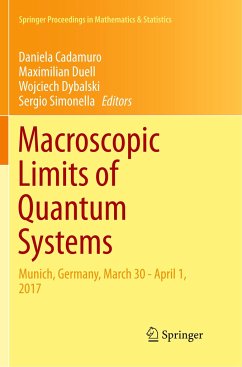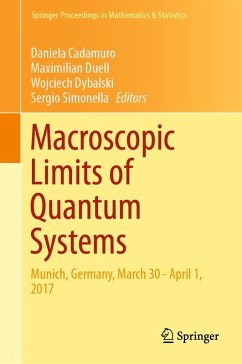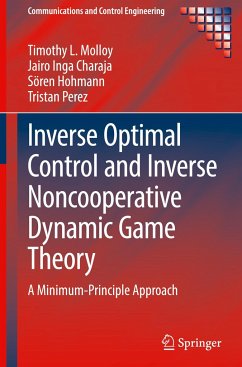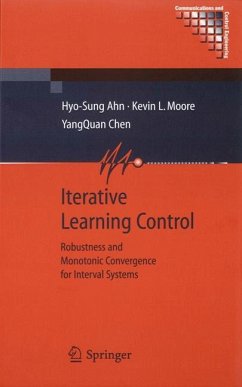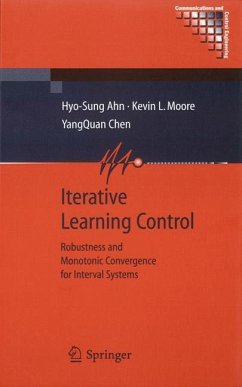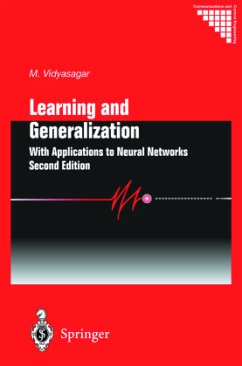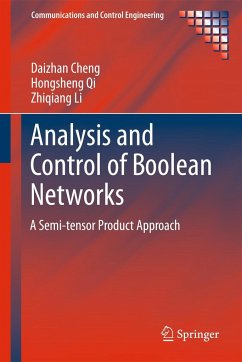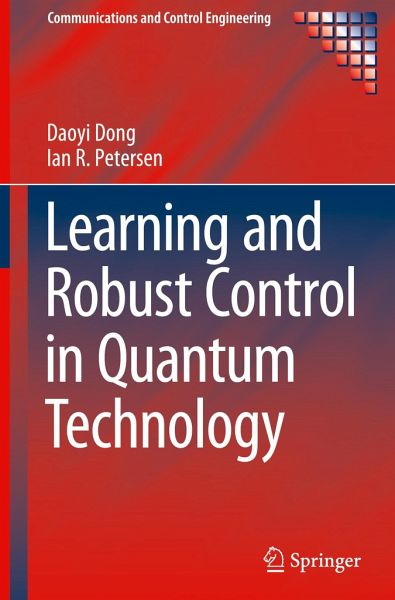
Learning and Robust Control in Quantum Technology
Versandkostenfrei!
Versandfertig in 6-10 Tagen
113,99 €
inkl. MwSt.
Weitere Ausgaben:

PAYBACK Punkte
57 °P sammeln!
This monograph provides a state-of-the-art treatment of learning and robust control in quantum technology. It presents a systematic investigation of control design and algorithm realisation for several classes of quantum systems using control-theoretic tools and machine-learning methods. The approaches rely heavily on examples and the authors cover:sliding mode control of quantum systems;control and classification of inhomogeneous quantum ensembles using sampling-based learning control;robust and optimal control design using machine-learning methods;robust stability of quantum systems; and H a...
This monograph provides a state-of-the-art treatment of learning and robust control in quantum technology. It presents a systematic investigation of control design and algorithm realisation for several classes of quantum systems using control-theoretic tools and machine-learning methods. The approaches rely heavily on examples and the authors cover:sliding mode control of quantum systems;control and classification of inhomogeneous quantum ensembles using sampling-based learning control;robust and optimal control design using machine-learning methods;robust stability of quantum systems; and H and fault-tolerant control of quantum systems. Both theoretical algorithm design and potential practical applications are considered. Methods for enhancing robustness of performance are developed in the context of quantum state preparation, quantum gate construction, and ultrafast control of molecules.
Researchers and graduates studying systems and control theory, quantum control,and quantum engineering, especially from backgrounds in electrical engineering, applied mathematics and quantum information will find Learning and Robust Control in Quantum Technology to be a valuable reference for the investigation of learning and robust control of quantum systems. The material contained in this book will also interest chemists and physicists working on chemical physics, quantum optics, and quantum information technology.
Researchers and graduates studying systems and control theory, quantum control,and quantum engineering, especially from backgrounds in electrical engineering, applied mathematics and quantum information will find Learning and Robust Control in Quantum Technology to be a valuable reference for the investigation of learning and robust control of quantum systems. The material contained in this book will also interest chemists and physicists working on chemical physics, quantum optics, and quantum information technology.





